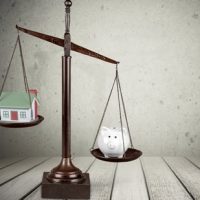Three Questions about Florida’s Homestead Exemption

One fear many consumers have when filing for bankruptcy is that they will lose their home. This fear is rational. After all, in a Chapter 7 bankruptcy, the trustee in charge of your estate can sell assets in order to pay back your creditors. This means they can sell your home and use any equity to pay back creditors.
Fortunately, Florida’s homestead exemption shields consumer’s homes from creditors, which also protects the home in bankruptcy. Below are answers to some of the most common questions we receive about how you can take advantage of the homestead exemption in bankruptcy.
I Heard I Can Exempt an Unlimited amount of Value in my Home. Is that True?
It depends on your home and how long you have lived there. There is a lot of inaccurate information out there, stating for example that you can always exempt the full value of your home. The truth is more complicated than that.
Under the bankruptcy rules, you can exempt the full value of your home if you have lived in it for 40 straight months before you file for bankruptcy. The purpose of this rule is to prevent people from moving to Florida to take advantage of the homestead exemption and quickly file for bankruptcy.
If you have not lived in your home for 40 consecutive months, then you can exempt a maximum of $145,000 per person, or $290,000 for a couple. Depending on how long you have been living in the home, you might want to delay filing for Chapter 7 bankruptcy or discuss with an attorney whether a Chapter 13 is better for you.
What Kinds of Homes Qualify?
The homestead exemption only applies to homes people live in. For this reason, it will not protect investment property, such as a condo that you use in the winter while you live the rest of the year in New York or Massachusetts.
However, Florida’s courts have found that the homestead exemption does apply to the following:
- Condominiums
- Mobile homes
- Manufactured homes
Furthermore, according to the Florida Constitution, homes must be on a maximum one-half acre on the city limits or 160 contiguous acres in any county in the state.
Can I Own the Home as a Business?
No. You must own the home as an individual. You cannot own the home as a partnership, corporation, limited liability company, or irrevocable trust. If you do, it does not qualify for the Florida homestead exemption. If you own a home in one of these forms, you should discuss whether a different bankruptcy option will be better for you.
Save Your Home and File for Bankruptcy
Choosing to file for bankruptcy requires that you take a close look at your assets and properly understand how a bankruptcy filing will affect them. At Nowack & Olson, our team of bankruptcy attorneys in Plantation will perform a full evaluation of your financial situation and help you select a bankruptcy option that works for you. To start the process, please call 866-907-2970 or submit our online contact form. Initial consultations are free.
